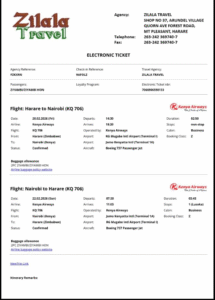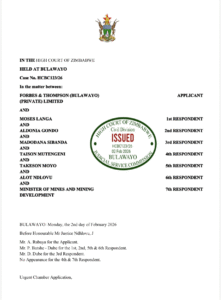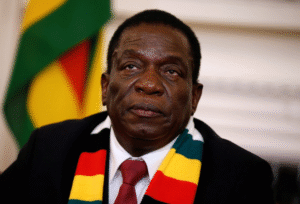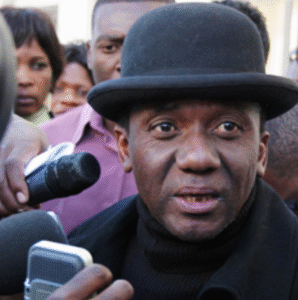HIGH COURT DENIES BAIL TO 73 ACTIVISTS AMID FEARS OF PROTESTS

In a significant judicial decision, the High Court of Harare has dismissed an appeal by 73 opposition activists from the CCC party, denying them bail amidst heightened government concerns over potential anti-government protests. The ruling was made following accusations against the activists for allegedly planning unlawful gatherings, as the country braces for the upcoming Southern African Development Community (SADC) summit scheduled on August 17.
This critical judgment comes at a time when the government is intensively cracking down on both real and imagined plots to stage demonstrations, fueled further by recent protest activities in Kenya which seem to have intensified local authorities’ paranoia.
Among the 74 accused, only one – identified as Maxwell Sande due to considerations over his age—was granted bail by Justice Munamato Mutevedzi, who upheld the magistrate’s original decision for the rest. In his ruling, Justice Mutevedzi stated, “The magistrate’s court did not misdirect itself in its assessment of the issues and in finding that the appellants were not proper candidates for admission to bail.”
The detainees, including prominent former MP and minister Jameson Timba, are claimed to have been part of an unlawful assembly aimed at organizing protests against the government. The vast majority of these individuals hail from economically marginalized areas such as Chitungwiza, Epworth, and Hatcliffe, and face high unemployment rates, which paints a broader picture of discontent and economic desperation.
In an intriguing demographic breakdown, it was noted that the appellants were not a random assembly but came from “different but clearly defined clusters,” with nearly three-quarters residing in the aforementioned suburbs. A significant majority are also below forty years of age and share a common political alignment with the CCC, further indicating a generational and ideological divide.
Justice Mutevedzi’s ruling also highlighted that the only successful appeal, that of Maxwell Sande, involved his release into the custody of his father, Cecil Sande, who is responsible for ensuring his son abides by all court conditions. The precise conditions under which Sande will be monitored remain part of an ongoing legal framework aimed at closely supervising accused individuals pre-trial.
This decision to deny bail has been perceived as a stark manifestation of the current administration’s intolerance towards dissent and its preemptive measures to quell possible disturbances during a politically sensitive period. The government’s approach reflects a broader regional pattern where state apparatuses frequently suppress opposition voices in the guise of maintaining public order.
The court’s denial to grant bail to the vast majority of appellants raises significant questions about the balance between national security concerns and individual rights, particularly the right to a fair trial and the presumption of innocence. Legal experts and human rights advocates have criticized the blanket application of bail denials, arguing that it undermines the justice system’s integrity and disproportionately affects individuals from socio-economically disadvantaged backgrounds.
As Zimbabwe heads towards the SADC summit, the eyes of international observers are on how the country manages its internal dissent and whether it adheres to international standards of human rights and judicial fairness. The outcome of this high-profile case is likely to resonate beyond the nation’s borders, affecting Zimbabwe’s international standing and its relations within the SADC region.
The unfolding situation presents a crucial test for Zimbabwe’s judiciary and its government, challenging them to navigate between maintaining law and order and respecting the democratic rights of its citizens.





